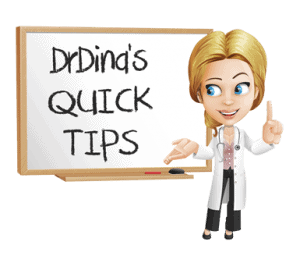Symptoms Of Gluten Allergy Or Symptoms Of Wheat Intolerance?
This topic is near and dear to my heart as I was officially diagnosed with celiac disease 10 years ago. I had symptoms of wheat intolerance years before, but was labelled, as many are, with ‘irritable bowel syndrome’ and not investigated properly. In med school I became aware of Celiac Disease and got myself tested. Within mere weeks of a gluten free diet, I began to feel better and have been feeling great for 10 years!
Within mere weeks of a gluten free diet, I began to feel better and have been feeling great for 10 years!
Let me start with the basics. Gluten is a protein found in certain grain products; this is what gives breads and dough the chewy, stretchy texture. It is this protein that gives people the symptoms of gluten allergy.
There really is no diagnosis of a ‘gluten allergy’; there are several different conditions that cluster and have some overlap of the symptoms.
Symptoms of wheat intolerance and Celiac Disease
These are the common symptoms of both:
- Diarrhea and/or constipation
- Stomach pain and/or bloating and/or heartburn
- Fatigue
- Anemia (low iron levels)
- Rashes
- Depression or anxiety
Does your child have these symptoms? This could mean that your child has either a ‘gluten sensitivity’ or Celiac Disease. The only way to determine is to undergo the appropriate tests.
So to avoid false negative testing, your child should continue to ingest at least a small amount of gluten prior to testing.
It is a 2-step process. The first step is a simple screening test where a small amount of blood is drawn and tested for a specific antibody (IgA or IgG). If this test demonstrates antibodies, your child will likely benefit from a gluten-free diet, and is labeled as having Celiac Disease. If the test is negative, some health care practitioners recommend a biopsy of the small intestine using an endoscopy to confirm. The catch is your child cannot be on a gluten free diet prior to these tests. That’s because the blood test and biopsy will show the damage to the small intestine. This damage is not permanent and will heal itself provided your child avoids gluten. So to avoid false negative testing, your child should continue to ingest at least a small amount of gluten prior to testing.
So what if the blood test and biopsy are negative, but the child clearly has symptoms of wheat intolerance? This is called gluten intolerance, versus Celiac Disease. Unlike Celiac Disease there is no damage to your small intestine with exposure to wheat, though the symptoms can be the same. This is different from a wheat allergy, which can cause an allergic reaction (check out my allergy eBook for all you need to know about allergies).
Quick Tips:
-
Celiac disease, gluten intolerance/’gluten allergy’, and wheat intolerance have similar symptoms
-
A blood test (and biopsy) are required to diagnose or rule out celiac disease
-
Following a gluten-free diet helps relieve the symptoms
Dina is a wife, mother of 4, and adrenaline junky. She loves to share children’s health information from her professional and personal experience. More About Dr Dina.











